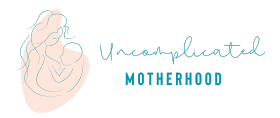Baby Development Milestones: What to Expect in Your Baby’s First Year
The first year of a baby’s life is a time of incredible growth and development. As a parent, it’s natural to be curious about the milestones your baby will achieve during this period. Understanding these developmental milestones can help you track your baby’s progress and provide appropriate support and stimulation. In this article, we will explore the key developmental milestones that you can expect in your baby’s first year, from their physical abilities to their cognitive and social-emotional growth.
Physical Milestones: Motor Skills
During their first year, babies make significant progress in their physical development and motor skills. Here are the milestones you can anticipate:
- Gross motor skills: In the first few months, your baby will develop head control, followed by the ability to roll over, sit independently, crawl, and eventually walk. Around 3 to 4 months, they may start reaching for objects and grasping them. By 6 to 7 months, they can sit unsupported and may begin to pivot and scoot on their bellies. At around 9 to 10 months, your baby may start pulling up to stand, and by their first birthday, some babies may take their first steps.
- Fine motor skills: Your baby’s fine motor skills involve the coordination of small muscles, particularly in their hands and fingers. Initially, they will grasp objects instinctively but gradually develop a more intentional grip. Around 4 to 6 months, they will start to pass objects from one hand to the other. By 8 to 10 months, they can pick up small objects using their thumb and forefinger in a pincer grasp. By the end of the first year, they may be able to stack blocks, turn pages of a book, or feed themselves finger foods.
- Hand-eye coordination: Hand-eye coordination is a crucial aspect of physical development. Throughout their first year, your baby will gradually improve their ability to coordinate their hand movements with what they see. They will begin by swatting at objects and progress to reaching, grabbing, and eventually purposefully manipulating objects.
As your baby achieves these physical milestones, it’s important to provide a safe and stimulating environment that encourages exploration and movement. Allow plenty of floor time for supervised play, provide age-appropriate toys and objects for grasping, and celebrate each milestone they reach.
Cognitive and Language Development
Alongside physical development, babies experience significant cognitive and language development during their first year. Here are the milestones to look out for:
- Social smiling and recognition: Around 2 to 3 months, your baby will start smiling responsively and showing signs of recognizing familiar faces, particularly those of their primary caregivers. They will also begin to respond to your voice and show interest in their surroundings.
- Receptive language skills: Receptive language skills refer to your baby’s ability to understand spoken language. From the early months, they will respond to familiar voices, turn their heads toward sounds, and follow objects with their eyes. Around 6 to 9 months, they may begin to understand simple words and commands, such as “no” or “bye-bye.”
- Expressive language skills: Expressive language skills involve your baby’s ability to communicate their needs and wants through sounds, gestures, and eventually words. Initially, they will babble and coo, experimenting with different sounds. Around 9 to 12 months, they may start saying simple words like “mama” or “dada” and imitating some sounds and gestures.
- Object permanence: Object permanence is the understanding that objects continue to exist even when they are out of sight. At around 8 to 9 months, your baby will start to develop this concept, actively searching for hidden objects or people.
Engaging in meaningful interactions, talking, reading, and singing to your baby, and providing age-appropriate toys and books can support their cognitive and language development. Responding to their vocalizations and gestures encourages communication and strengthens the parent-child bond.
Social and Emotional Development
Babies also experience significant social and emotional growth during their first year. Here are the milestones to anticipate:
- Attachment: From birth, babies form strong attachments to their primary caregivers. They seek comfort and security from their caregivers, show distress when separated, and seek proximity and connection. Building a secure attachment through responsive and nurturing caregiving sets the foundation for their future social and emotional well-being.
- Social interactions: As your baby grows, they will become increasingly interested in social interactions. They will enjoy looking at faces, imitating expressions, and engaging in back-and-forth interactions through vocalizations and gestures. By around 6 to 9 months, they may begin to exhibit stranger anxiety, showing wariness or distress when confronted with unfamiliar people or situations.
- Emotional expressions: Your baby will develop a range of emotional expressions, including happiness, sadness, frustration, and excitement. They will learn to communicate their emotions through facial expressions, vocalizations, and body language.
- Exploration and independence: As your baby becomes more mobile and curious, they will start to explore their environment and assert their independence. They may crawl or walk away from you, engaging in independent play and showing a desire for autonomy.
Supporting your baby’s social and emotional development involves providing a secure and loving environment, responding sensitively to their needs, and allowing them the freedom to explore their surroundings in a safe manner.
Conclusion
The first year of your baby’s life is filled with numerous milestones and remarkable growth. By understanding the physical, cognitive, and social-emotional milestones your baby will likely achieve during this time, you can support their development and celebrate their achievements. Remember that each baby develops at their own pace, and there is a wide range of what is considered normal. If you have concerns about your baby’s development, consult with your healthcare provider for guidance and reassurance. Cherish this extraordinary year of growth and embrace the precious moments as your baby reaches each milestone.
